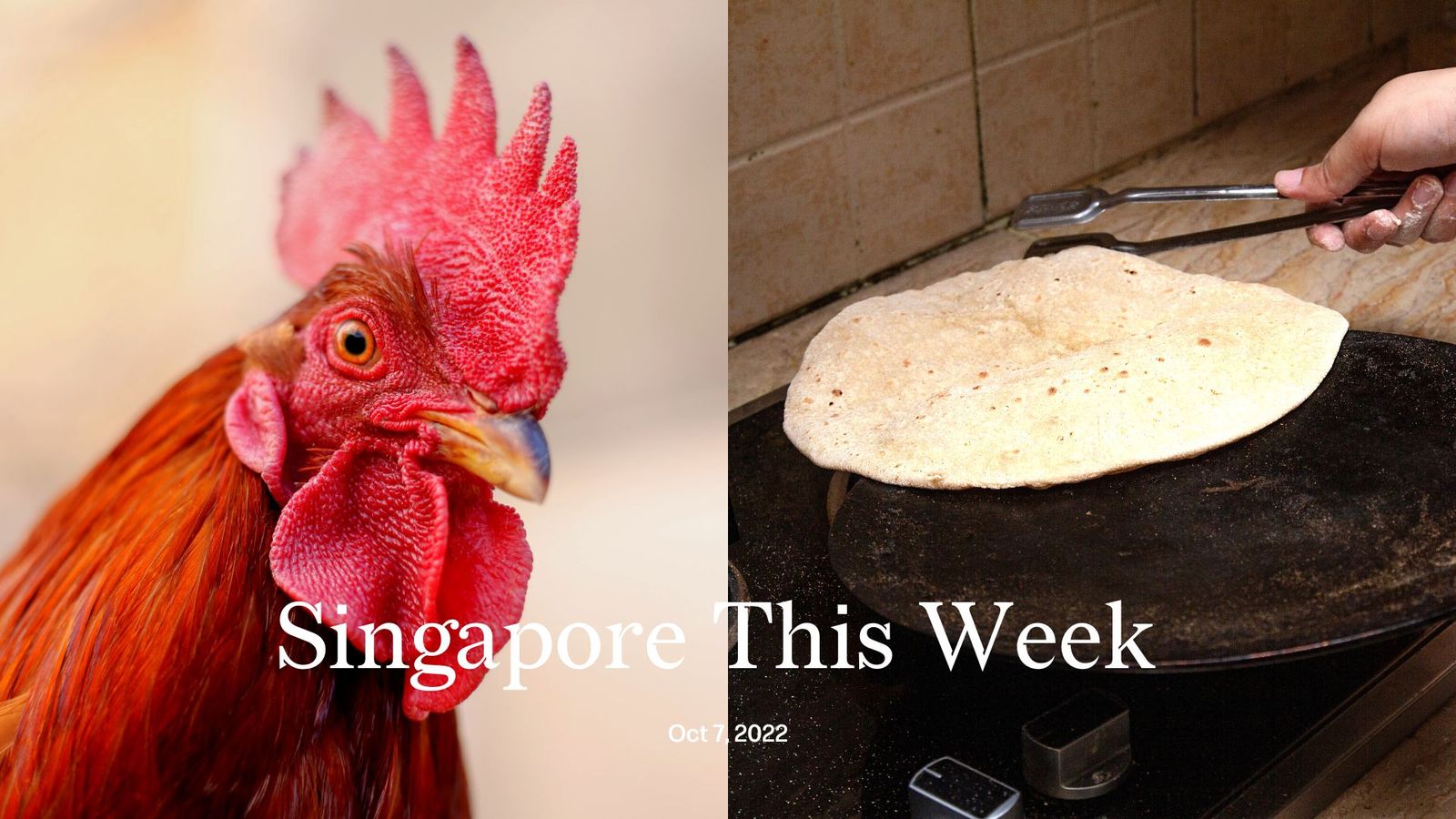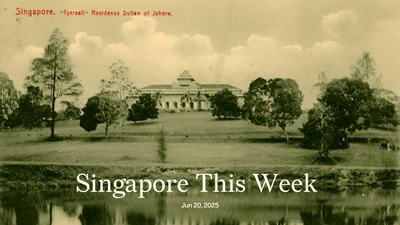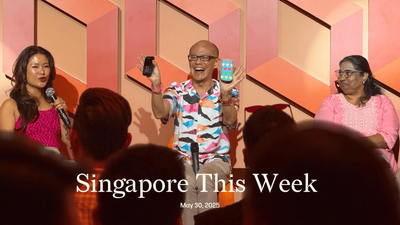Society: Cutting through the haze
“I don’t feel that any government has the right to ‘own’ their citizens’ bodies once they’re outside the physical boundaries of the state,” Lorraine Tan, a 25-year-old Singaporean told The Straits Times (ST). She was referring to Singapore’s Misuse of Drugs Act, which empowers the courts to convict citizens and permanent residents (PRs) who test positive for drugs consumed overseas as if the offence had occurred locally. Tan reflects a generational shift in attitudes towards cannabis consumption, as found in a survey of 1,000 citizens and PRs. For those below 45, a clear plurality believe that Singaporeans should be allowed to consume cannabis where it’s legal (some disagreed, others had “no opinion”). But for those 45 and over, the inverse is true. Separately, a majority of all surveyed believe that medical marijuana should be legal in Singapore. The establishment continues to focus only on the harmful effects the substance has on heavy users. To insulate its propaganda from contrarian thinking, Singapore also blocks content, including “The Legend of 420”, from Netflix, making it the streaming service’s “most censored market”. Spurred by liberalisations in Malaysia and Thailand, as well as reports that national athletes have had a toke overseas, it is refreshing that Singaporeans are having an open conversation about cannabis—which is still, bizarrely, classified as a Class A drug, alongside the likes of fentanyl and heroin. This could be an inflection point in Singapore’s journey towards a more rational way of regulating the herb.
Society: Chapati and chickens
Our food paradise is losing its supply. As if Malaysia’s chicken export ban wasn’t enough, Indian restaurants are now reeling from the effects of India’s wheat export ban, which began in May following a heat wave and amid broader supply disruptions following Russia’s invasion of Ukraine. Wholesale prices of some Indian flours have risen from S$5 to S$15 a kilo, in line with flour from places like Dubai. Some Singaporean restaurants have altogether stopped serving chapati, which is a cheap source of nutrition for thousands. “It will be a drastic change, especially for people like Punjabi workers who eat up to six chapatis per meal every day,” S. Mahenthiran, director of Gayatri, told ST. Some chicken-starved Singaporeans, meanwhile, have started making weekly trips to Johor Bahru. Chicken sellers there told ST that regulars buy whole fresh chickens, wrap them in newspaper, and then smuggle them back. (No better use for The Straits Times, they might have added.) The ayam nenas, a chicken fed on pineapple enzymes, is a particularly popular contraband because it apparently makes for tender steamed chicken. It may not be long before travellers from India arrive with wheat flour in their luggage. In today’s Singapore, the host who serves chapati and chicken may have something to crow about.
Society: More Indian doctors and more preventive care
Ministry of Health Holdings (MOHH), the umbrella group for Singapore’s public healthcare institutions, was forced on the back foot by revelations that it is looking for a recruitment agency to help it attract doctors from India. Critics pointed to alleged fraud in Indian medical campuses, and wondered why the local pipeline isn’t enough. MOHH said that over 90 percent of junior doctors it hires are local, but declined to comment on whether it intends to expand recruitment of Singaporeans trained overseas, or whether junior doctors from India make up the majority of foreigners recruited. It’s the latest flashpoint in the decade-long angst about the India-Singapore Comprehensive Economic Cooperation Agreement, or CECA, which critics say has facilitated high immigration from the sub-continent, apparently to the detriment of local hires. MOHH’s seemingly selective responses will only fuel the nativist suspicion of government motives. Separately, Singapore announced that it will spend over S$1bn as part of a new preventive care strategy, including efforts to shift care from hospitals to the community, largely by cultivating long-term relationships with family doctors. Singaporeans are notoriously elitist when it comes to care, with many wanting to see specialists for even the tiniest of ailments. This is a welcome shift, which will surely lead to more efficient usage of the healthcare system and better outcomes. New migrants, from India or elsewhere, have found it relatively challenging performing a family doctor’s role because of cultural fit (or lack thereof). The current nativist climate won’t help.
Society: Online harm
Protect users from harmful content online, or risk being fined up to S$1m and having your services blocked. That’s the message to social media platforms, like Facebook, Instagram and TikTok, with the Online Safety (Miscellaneous Amendments) Bill. The proposed law empowers the government to block or remove egregious online content, including that which advocates self-harm and suicide; encourages child sexual exploitation and cyber-bullying; threatens public safety; and incites racial or religious intolerance. Over 600 people—like parents, youth, academics, community and industry groups—were consulted by the Ministry of Communications and Information (MCI), with most respondents supporting proposals to enhance online safety. There are concerns, however, that these proposed safety measures are another form of “censorship in disguise”. It’s unclear how the government will determine the threshold of serious harm, whom it precisely harms (public or state), who makes the final decisions (faceless civil servants), and how transparent the process will be: will each removal decision be documented and publicly available? MCI’s feedback summary statement fails to reveal the exact methodology and full respondents’ comments. Public engagement with the state on matters that impact society often remains shrouded in secrecy, with the government cherry-picking what to share after these closed-door consultations. Harmful online content is a scourge of society—but opaque, top-down management by a traditionally censorial state may not be the best way to deal with it. More transparency, please.
Society: Women in the workforce
Halimah Yacob, Singapore’s first female president and long-time champion of gender inclusivity, has called on employers to provide flexible work practices to enable women to remain in the workforce. Many women continue to face the dilemma of juggling or leaving their jobs to take on the duties of primary caregiver. These decisions have not only impacted their careers—many find it hard to re-enter the workforce—but also made it harder for women to stay financially resilient and independent, which affects their ability to retire comfortably. But the pandemic has had the unintended effect of levelling traditional gender roles, opening up child-caring responsibilities to both parents, who’ve had to work from home for months on end. Providing days off for family care and paternity leave would further entrench the idea that caregiving is a shared responsibility of both men and women. It seems tragic that women still have to choose between their careers and family life. It’s about time that companies step up, or the government passes a law that makes these gender-equalising practices mandatory.
Arts: NFTs at the Gallery
Visitors to the National Gallery Singapore can now redeem a free non-fungible token (NFT) via its new vending machine. The NFTs on offer feature art commissioned by the Gallery and based on the work of local artist Hafiz Karim, aka The Next Most Famous Artist. This is not the first time the Gallery has dabbled in web3. In January, the museum held a fundraising auction of NFTs, including a few minted photographs by Tan Chuan-Jin, the speaker of parliament. The vending machine initiative is strangely timed as interest in NFTs has cooled—sales of the tokens dropped 60 percent between the second and third quarters of this year. Stranger still is the promotion of NFTs, an energy-intensive technology criticised for being more speculative financial instrument than art, by a national institution whose mission is to make art publicly accessible.
Arts: Baybeats
Alternative music festival Baybeats is back at the Esplanade this October. The line-up consists of Singaporean performers and regional acts from Malaysia, India, Japan and more. Baybeats has long been a great way for local audiences to discover new music. This year, five acts have been selected for the Baybeats Budding Beats mentorship programme, including the metalcore outfit Aggressive Raisin Cat and singer-songwriter xena giam. The festival will also feature 15-minute sets from emerging musicians on the Open Stage. Local music veterans like Force Vomit and Rudra will perform too. The Esplanade will also stream each day’s performances on multiple social media channels for those who’d rather enjoy the festivities from the comfort of their homes.
Arts: “Make Hantus Great Again”
Teater Ekamatra will stage a supernatural, political satire, “Make Hantus Great Again”, at the end of this month. The play follows the second-ever General Elections of the Convention of Metaphysical Entities (COME), the national administrative body for Singapore’s population of supernatural beings. Who the audience votes for—pontianaks, vampires and jinns are among the mix—will decide the most important election of their afterlives. “Hantus” is the first play written by Suffian Hakim, best known for his novels like Harris bin Potter and The Stoned Philosopher. The play will be staged at the Wild Rice theatre in Funan following Teater Ekamatra’s exit from Aliwal Arts Centre, earlier this year.
History weekly by Faris Joraimi
The Hindu festival of Navaratri (“Nine Nights”) concluded this week. It honours Shakti, an intricate concept in Indian thought. Though understood as many things in different places, Shakti is largely associated with the creative energy of the universe and the feminine aspect of divinity. It finds manifestation in a range of goddesses, including Lakshmi, Saraswati and Durga. Each night is dedicated to a specific deity, but climaxes with a celebration of Durga and her triumph over the buffalo-demon Mahishasura on the day after the ninth night. In Singapore, this festival is observed primarily by Tamils, and like them, the goddesses have long been in our part of the world. Figures of Lakshmi and Durga in Java date back to the 7th century, attesting to ancient networks of movement across the Bay of Bengal. Navaratri makes me think about many rites human societies hold to mark the passing of seasons. Many are commemorated in Singapore without a public holiday, punctuating the sacred calendars that exist alongside national, secular time. This year, Navaratri coincided with the Nine Emperor Gods’ Festival, observed specifically by Chinese communities in South-east Asia to welcome the nine deities who appear in the sky as the Big Dipper constellation. The number recurs: nine saints also brought Islam to Java (Wali Songo). These shared motifs remind us that we still live in a world of patterns and symbols, given expression in stories and festivals associated with them. The birth anniversary of Muhammad (Maulid ar-Rasul) tonight, attended by devotional singing and poetry, reflects a modern present rich with meaning and imagination. The goddesses, prophets and saints are still with us.
Tech: Searching for a circular economy
The recently announced Google for Startups Accelerator: Circular Economy is a 10-week programme that will help start-ups and non-profit groups in Asia-Pacific and North America with customer acquisition, product design, leadership development, circular economy deep dives, research, and workshops. Unlike traditional start-up accelerators, Google will not be taking equity or offering any investment through the programme. Asia-Pacific is one of the regions most vulnerable to the impacts of climate change. This is not Google’s first regional green initiative. In March, it announced a US$6m (S$8.53m) fund to help Asian climate change charities achieve their mission more effectively with technology. While Google’s efforts are laudable, it is worth remembering that its own data centres have heavy water consumption while its smartphone business has a poor environmental track record. Rich companies like Google will continue trying to moderate their own ecological footprints, while funding external innovations that may help nudge us all towards a more sustainable world.
Tech: Can ONE survive?
ONE Championship’s latest numbers do not look good according to recent filings with ACRA (Accounting and Corporate Regulatory Authority). Revenue grew from US$56.8m (S$81.5m) in 2020 to US$67.7m (S$97.17m) in 2021, but losses ballooned to US$111m (S$159.3m), twice as much as the previous year. ONE says that a significant part of the loss was due to the conversion of its convertible notes to equity. At the recent Milken Institute Summit, CEO Chatri Sityodtong said that the company would reach US$80m (S$114.8m) in revenue in 2022 and would be profitable within three years. However, at its current loss rate, its cash reserves will dry up in a year and a half. It seems likely that ONE will soon need another round of financing. The next year will be crucial in determining whether ONE survives or gets knocked out.
Tech: ShopBack gives back to some, takes from others
ShopBack’s recent US$80m (S$114.8m) investment from Temasek-backed 65 Equity Partners brings the total size of its Series F round to US$160m (S$230m). 65 Equity Partners is a S$4.5bn fund set up by Temasek in 2021; it absorbed the Anchor Fund, which provides late-stage financing for initial public offerings on the Singapore Exchange. Shopback, a Singapore-based shopping and rewards platform, is likely to benefit from the strategic synergies with 65 Equity Partners, especially if it eventually chooses to list on the Singapore Exchange. ShopBack was founded by Henry Chan and Joel Leong in 2014 and has grown to more than 35m users across 10 countries, powering US$3.5bn (S$5bn) in annual sales. The platform also facilitates one million shopping journeys for over 10,000 merchant partners every day. Besides cashbacks, the company also, after acquiring Hoolah, provides users with “buy now and pay later” services. Given the difficult fundraising climate, it is heartening to see that investors are putting even more money into ShopBack—rather than asking for cashbacks.
If you enjoy Jom’s work, do get a paid subscription today to support independent journalism in Singapore.








